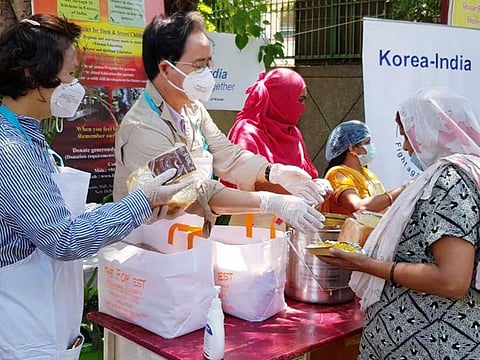COVID-19: Beware the looming food shortage
Coronavirus: All countries must help aid agencies to keep millions out of hunger’s way

The World Food Programme (WFP) last week raised a red flag that only a few noticed in the middle of this coronavirus pandemic. David Beasley, executive director of the United Nation’s food agency, warned that up to 250 million people would face hunger if the global community did not take urgent steps. Beasley, who himself recovered from COVID-19 and briefed the UN Security Council via video-conferencing on April 21, named ten conflict-ridden and underdeveloped countries, including three in this region, and said these nations were most at risk. Some of these countries in East Africa and South Asia were suffering due to severe drought and locust invasion long before the pandemic struck.
If the international community failed to act with urgency, Beasley warned, these countries may face a famine of “Biblical proportions”. The warning came at a time when countries around the world are facing death and sickness on a colossal scale. Thousands are dying daily and tens of thousands are falling sick every other day. Still, this warning from the WFP must be taken seriously and the global community must act to prevent the pandemic from becoming a food crisis as well.
Lockdowns and disruption of economic activity have landed a catastrophic blow to the poor who are struggling to eat without daily earnings. Their misery is expected to grow in the coming weeks and months when nations take the full impact of economic disruption. The worst hit will be the urban poor and those who live in conflict-ridden countries, including Syria, Yemen, Sudan and Afghanistan. A report by the UN Food and Agriculture Organisation has projected that inability to provide food will push millions of pandemic-hit families into deeper distress worldwide. The UN food programme urgently needs money to build networks to deliver humanitarian relief.
Even as this pandemic is overwhelming emergency response systems in the United States, Europe and Asia, the global community cannot overlook food shortages that may become full-blown crises in many parts of the world. Rich and powerful countries have a moral and ethical responsibility to support international aid agencies and ensure that funding channels remain active during the pandemic. While governments may be overstretched to look beyond their territories at this time, assistance to UN agencies must not stop. A global recession predicted by experts will massively disrupt food supply chains, hitting the poor and the displaced.







